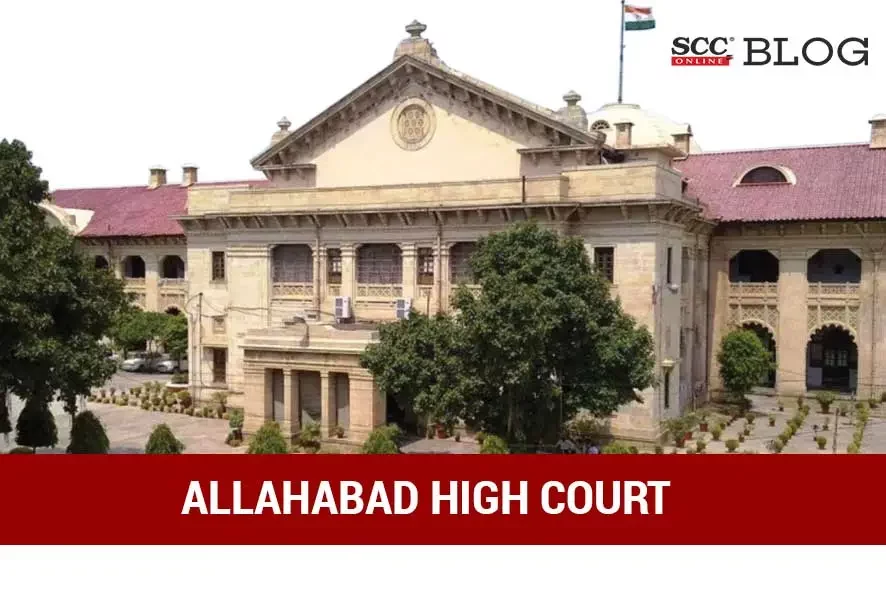Allahabad High Court: In a criminal revision filed in a murder case by the accused challenging the order passed by the Additional District and Sessions Judge, whereby the permission to examine 5 defence witnesses, were refused, Jyotsna Sharma, J. while setting aside the impugned order , allowed the accused to move an application, within a week of production of certified copy of this order, and to give name of 2 persons (out of 5 named) he sought to summon as defence witness. Further, it directed the Trial Court to issue summons for their production as defence witnesses.
During the trial, the accused’s application was moved that the inquiry was done in presence of 5 public witnesses, and they were named as prosecution witnesses. The aforesaid 5 prosecution witnesses have not been produced by the prosecution, therefore at least one of them may be summoned and examined as court witness. The aforesaid application was rejected by order dated 27-06-2018 by the Trial Court.
The Court referred to Section 311 Code of Criminal Procedure, 1973 (‘CrPC’) and said that the court has a plenary power to summon any person at any stage of the proceedings as a witness. This power includes recall and re-examination of any person who has already been examined. This power is to be exercised when the court finds it necessary to summon/recall any witness for just decision of the case. The law puts no fetters on the powers of the courts to call for any witness to attain the highest goal of justice.
It further opined that Section 311 CrPC gives expression to the inherent power of the courts which is available to them by virtue of being the supreme authority who has been entrusted with responsibility to do justice. Power lies with the Court alone as juxtaposed to rights or powers of parties. The others stake holders whether prosecution or defence, have a limited role of drawing the attention of the court and putting the relevant material before it which may assist it in arriving at a correct inference.
After perusing Section 233 CrPC, the Court said that is an essential part of session trial and is applicable when the prosecution evidence is complete, and the accused is given an opportunity to produce the evidence in its defence. This right has been given to the defence to produce its witnesses as part of a fair trial and as part of the legal principle of hearing both the sides. It further opined that here the right belongs to the accused and not to the court concerned, in the sense that the court concerned shall ordinarily issue process and can decline to summon the witness only because the request is made for the purpose of vexation or delay or for defeating the ends of justice. The difference between the powers of the court and the right of the accused is too obvious. Under Section 311 CrPC, the power lies in the Courts only and under Section 233 CrPC, the right lies with the accused and the court’s interference is limited. The Court can only refuse to issue summons where it ought to have refused on the ground that it is made for the purpose of vexation or delay or for defeating the ends of justice only.
The Court viewed that if the application is refused on the grounds which are not covered by three excluding clauses, as provided in the latter part of Section 233(3) CrPC such an approach shall be alien as far as scope of Section 233 CrPC is concerned. The Court noted that witnesses who are sought to be summoned by the defence under Section 233(3) CrPC were not examined as prosecution witnesses, at any stage, though they were witnesses of inquest but never produced by the prosecution.
The Court held that the observation of the Trial Court that summoning the witnesses will be tantamount to review, is misconceived. The Trial Court failed to apply the law in the right perspective and ignored the difference in scope and implications in which the provisions of Section 311 CrPC and Section 233(3) CrPC are meant to be applied. Hence, as per the Court, the order of the Trial court suffers from legal flaws and is not sustainable.
[Anupam Sharma v State of UP, 2024 SCC OnLine All 156,Order dated 17-01-2024]
Advocates who appeared in this case :
Counsel for Revisionist:- Advocate Nadeem Murtaza
Counsel for Opposite Party:- Govt. Advocate, Kailash Chandra, Advocate Mayank Pandey








